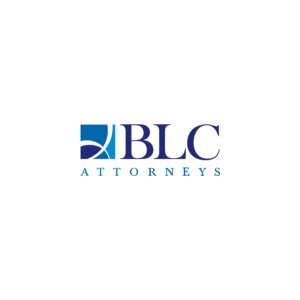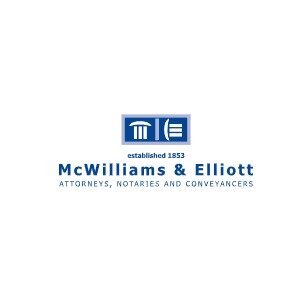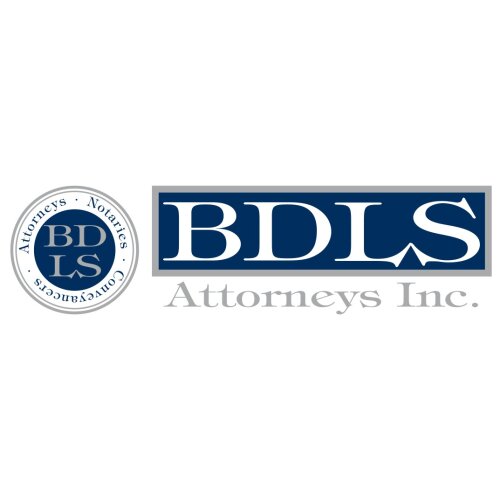Best Sanctions & Export Controls Lawyers in Port Elizabeth
Share your needs with us, get contacted by law firms.
Free. Takes 2 min.
List of the best lawyers in Port Elizabeth, South Africa
About Sanctions & Export Controls Law in Port Elizabeth, South Africa
Sanctions and export controls law in Port Elizabeth, South Africa, is an important area for individuals and businesses engaged in cross-border transactions, trade, and investment. Sanctions refer to legal measures implemented by the government or international bodies to restrict certain activities with specific countries, entities, or individuals. Export controls, on the other hand, regulate the movement of goods, services, and information out of the country, especially for items that may have strategic, security, or economic significance. In Port Elizabeth, these laws play a crucial role for the city's many businesses involved in shipping, manufacturing, and international trade through the local port.
Why You May Need a Lawyer
Legal support can be essential for dealing with sanctions and export controls in Port Elizabeth for various reasons:
- If you are exporting goods or technology that may be subject to control lists and want to avoid legal violations.
- If your business is suspected of interacting with sanctioned entities or countries and you face investigations or enforcement action.
- If you are unsure about the licensing requirements for exporting certain products or providing cross-border services.
- When you need guidance interpreting frequently changing local and international restrictions, especially for dual-use items.
- If your goods have been seized or detained due to suspected sanctions breaches or licensing issues.
- To develop or update compliance programs to avoid company or individual liability.
- If your business has been listed on a sanctions list and you need legal avenues to appeal or seek removal.
Local Laws Overview
In South Africa, including Port Elizabeth, various laws and regulations address sanctions and export controls:
- National Conventional Arms Control Act (NCACA) - Regulates the trade and export of conventional arms and certain technologies, requiring permits for related transactions.
- Non-Proliferation of Weapons of Mass Destruction Act - Manages the export of items that could aid in producing nuclear, chemical, or biological weapons.
- Customs and Excise Act - Governs import and export procedures at all ports, including Port Elizabeth, setting penalties for non-compliance.
- Financial Intelligence Centre Act (FICA) - Requires reporting of certain transactions with sanctioned persons and supports anti-money laundering obligations.
- International Sanctions - South Africa enforces United Nations Security Council sanctions, which are directly applicable, and may also implement its own unilateral measures.
Businesses and individuals must comply with both domestic and international requirements. Failure to do so can lead to severe legal consequences, including fines, loss of export privileges, and even criminal charges.
Frequently Asked Questions
What are sanctions and how do they affect businesses in Port Elizabeth?
Sanctions are official restrictions on dealings with certain countries, entities, or individuals. Businesses in Port Elizabeth must ensure they do not engage in prohibited transactions, such as exporting goods to a sanctioned country or interacting with a blacklisted entity.
What are export controls and what goods typically require a license?
Export controls regulate the transfer of specific goods, technologies, or services out of South Africa. Typically, military equipment, dual-use items, and sensitive technologies require licenses from the relevant authorities.
Which government departments oversee sanctions and export controls?
Key departments include the Department of Trade, Industry and Competition (DTIC), the South African Revenue Service (SARS), and the National Conventional Arms Control Committee (NCACC). They administer the relevant laws and issue necessary permits.
How do I know if my product or service falls under export control regulations?
Products and services subject to regulations are listed in control schedules or notices. A legal expert can help review these lists, classify your product, and determine the applicable requirements.
What steps should I take if my goods are detained in Port Elizabeth for alleged sanctions violations?
First, seek immediate legal advice. Lawyers can communicate with customs or enforcement agencies, review the reasons for detention, and help resolve the issue in line with the law.
Do United Nations or foreign country sanctions apply in South Africa?
South Africa enforces United Nations Security Council sanctions automatically. However, unless specifically adopted by South African authorities, sanctions imposed by other countries may not be legally binding within South Africa.
Are there penalties for violating export controls or sanctions laws?
Yes, penalties can include substantial fines, imprisonment, loss of export privileges, and the seizure of goods. Penalties may be imposed on both individuals and companies.
Can I apply for an exemption or license to export controlled goods?
In many cases, yes. Businesses can apply for permits or licenses from the relevant governing bodies. A lawyer can assist with the application process and increase your chances of approval.
How often do sanctions and export controls change, and how can I stay updated?
Regulations can change frequently due to global events. You can monitor government updates or work with a legal expert to ensure ongoing compliance by reviewing your practices regularly.
What should I do if my company is accused of violating sanctions or export control laws?
Contact a sanctions and export controls lawyer immediately. Legal professionals can help you respond to investigations, prepare for hearings, and work to resolve or mitigate any penalties.
Additional Resources
If you require more information or assistance relating to sanctions and export controls in Port Elizabeth, consider the following resources:
- South African Revenue Service (SARS) - Customs and excise queries, including import-export requirements
- Department of Trade, Industry and Competition (DTIC) - Guidance on trade, export controls, and sanctions policies
- National Conventional Arms Control Committee (NCACC) - Licensing and permit information for controlled arms and technologies
- Financial Intelligence Centre (FIC) - Information on reporting obligations for financial transactions linked to sanctioned entities
- Port Elizabeth local chambers of commerce and industry - Support for local businesses involved in international trade
- Professional legal associations - Referrals to qualified sanctions and export controls lawyers in Port Elizabeth
Next Steps
If you believe you need legal assistance in the area of sanctions and export controls in Port Elizabeth, South Africa, consider taking the following steps:
- Gather all relevant documentation about your trade or business activities and any interactions with authorities.
- Contact a lawyer who specializes in sanctions and export controls as soon as possible, especially if you are facing investigations, detentions, or compliance questions.
- Discuss your situation in detail with your legal representative to clarify your obligations and the potential risks you may face.
- Work with your lawyer to develop and implement compliance programs, review contracts, and ensure all regulatory requirements are met before exporting goods or services.
- Stay informed about changes to local and international sanctions and export control laws that could affect your business or professional activities.
Addressing sanctions and export controls issues proactively is key to avoiding costly mistakes. Qualified legal advice can make the difference between successful compliance and significant penalties.
Lawzana helps you find the best lawyers and law firms in Port Elizabeth through a curated and pre-screened list of qualified legal professionals. Our platform offers rankings and detailed profiles of attorneys and law firms, allowing you to compare based on practice areas, including Sanctions & Export Controls, experience, and client feedback.
Each profile includes a description of the firm's areas of practice, client reviews, team members and partners, year of establishment, spoken languages, office locations, contact information, social media presence, and any published articles or resources. Most firms on our platform speak English and are experienced in both local and international legal matters.
Get a quote from top-rated law firms in Port Elizabeth, South Africa — quickly, securely, and without unnecessary hassle.
Disclaimer:
The information provided on this page is for general informational purposes only and does not constitute legal advice. While we strive to ensure the accuracy and relevance of the content, legal information may change over time, and interpretations of the law can vary. You should always consult with a qualified legal professional for advice specific to your situation.
We disclaim all liability for actions taken or not taken based on the content of this page. If you believe any information is incorrect or outdated, please contact us, and we will review and update it where appropriate.










